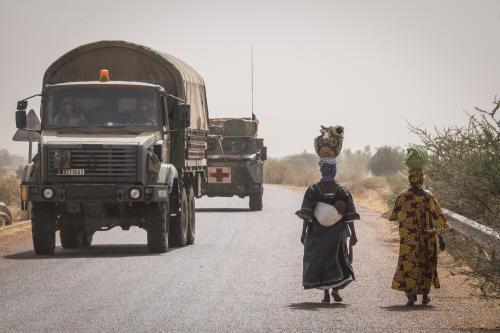

10:00 am EST - 11:30 am EST
Past Event
10:00 am - 11:30 am EST
1775 Massachusetts Avenue NW
Washington, DC
20036
On February 29, the Africa Security Initiative at Brookings held a discussion on Nigeria, nine months after the inauguration of President Muhammadu Buhari, the country’s first president to take office in a peaceful transition of power from one party to another. President Buhari, who previously ruled Nigeria in the mid-1980s after a military coup, inherits a country facing burgeoning population, low oil prices for its top export, and the Boko Haram extremist insurgency in the northeast. Buhari also inherited other problems such as unrest in the country’s delta and southeast regions, and a culture of corruption and human rights abuse and impunity throughout much of the country’s armed forces and police.
Less than a year into his presidency, Buhari has made progress in reforming the military, sacking some military leaders and injecting a bit more energy into the counter-Boko Haram campaign. But has he chosen the right priorities for Nigeria and fundamentally headed in the right direction, and what has been the impact on civilians, particularly in the northeastern part of the country? What additional role, if any, could the United States and the broader international community play to support additional reform?
We convened a panel to discuss these subjects. The panel, made up of independent experts with deep knowledge ranging from human rights to economics and finance to broader political and security sector reform, included EJ Hogendoorn of the International Crisis Group, Madeline Rose from Mercy Corps, Mausi Segun of Human Rights Watch, and Amadou Sy from The Brookings Institution. Senior Fellow Michael O’Hanlon, who directs the Africa Security Initiative at Brookings, moderated the discussion.
10:00 am - 11:30 am
On February 29, the Africa Security Initiative at Brookings held a discussion on Nigeria, nine months after the inauguration of President Muhammadu Buhari, the country’s first president to take office in a peaceful transition of power from one party to another.

Landry Signé
May 27, 2025

George Ingram, Junjie Ren
March 7, 2025

Mounir Siaplay, Eric Werker
February 3, 2023